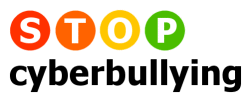 |
what is it? :: how it works :: why cyberbully? :: prevention :: take action :: what's the law?
![]() In this section:
In this section:
Common sense to Cybersense :: Is my child at risk? :: Parents biggest concerns :: What's the parent's role? :: Google yourself :: What methods work with the different kinds of cyberbullies? :: Telling the difference :: Instant Messaging 101 :: A quick guide to responding to a cyberbullying incident :: Community programs :: Wired Kids Summits :: Wired Kids Summits: Cyberbullying - Youth-Empowered Solutions :: Internet Superheroes :: Teenangels
Parents biggest concerns
The 4Ps - Privacy, Predators, Pornography and Pop-Ups
Parents are most concerned about the 4Ps. And many children are too. Predators pose the biggest danger, with some young teens being killed in recent years by someone they first met online. But privacy is a close second. And we receive more complaints about pop-ups and pornography advertising abuses that confront our children whenever they get online (and sometimes, in the case of pop-ups, even when they aren’t but have an ever-on broadband connection) than all other complaints combined.
This isn’t about scaring anyone, it’s about making our children and ourselves more aware of online risks and ways to avoid them. An aware child is a safe child. Teaching them to find the good sites while avoiding the bad, finding the trust while avoiding the hype and finding ways to use the technology to improve their lives is what this is all about.
- Predators
With increasing numbers of teens admitting they are meeting Internet strangers in real life (between 12% and 24 of young teens, depending on the study), they will increasingly encounter sexual predators.
Working closely with law enforcement and survivors of Internet sexual exploitation, Internet Super Heroes has developed an stranger-danger message in a non-threatening format. Using Green Goblin as the predator posing as a young teen boy to lure Spider-Girl into an offline meeting, the message is delivered loud and clear. Yet, it is as appropriate for preteens as it is for teens.
The program isn’t designed to scare the children or teens. It is designed to make them more careful and help them understand how the bad guys trick even the smartest children into giving away important and personal information. It helps them understand why some kids agree to meet strangers offline, and how it is never safe to do that. If they insist on meeting their online friends in real life, it also helps them understand how to reduce the risks and get their parents and other trustworthy adults involved.
- Privacy
Privacy has several parts. One is closely related to the stranger-danger message. Teaching children not to share personal information with people they meet online is much easier when the superhero model is applied. Super Heroes always strive to keep their identities secret. It’s the only way they can protect themselves and their loved ones. By using games where Spiderman, Spider-Girl and Hulk leave behind bits of information that could be used to trace their real identities, children are taught how items of seemingly innocent information, when combined, can be very dangerous to the superhero. By learning to protect the Super Heroes, they are learning to protect themselves and their friends as well.
But this isn’t only about predator issues. It’s also about responsible commercial data collection practices. Using the expertise of Parry Aftab (Internet Super Heroes’ Executive Director, cyberspace privacy lawyer and The Privacy Lawyer columnist for Information Week Magazine, informationweek.com) the children and teens will be taught how to look for and read a privacy policy and how to find trustworthy Web site. They will learn about the children’s privacy laws that protect them against unscrupulous marketing tactics and sites that misuse their personal information.
And the kids will understand the importance of privacy itself and keeping some things secret, even from their best friends. These include credit card information, debit card passwords and even their e-mail passwords. Everyone knows that Super Heroes don’t share their personal and secret information with anyone else, even their non-superhero best friends. Hopefully, after understanding why, neither will your children.
- Pornography
One of the biggest problems parents complain about online is graphic pornographic images their children encounter in their e-mail boxes and online. The pornographers in an effort to increase their advertising revenue and online profile, have used popular kid Web site. names with common misspellings and other similar tricks to lure our kids to their sites accidentally. By understanding the tricks used by pornographers to push their content to everyone online, children and teens can avoid most pornography. And learning where and how to report misleading domain names and typosquatting will make a big difference too.
- Pop-Ups
Now, by using spyware and adware, the pornographers are reaching out to our computers to personally deliver the messages using disgusting pop-ups and graphic sexual images even when our children aren’t surfing. By being made aware of spyware and adware installation schemes, and the pop-ups they deliver, children can use pop-up blocker programs and toolbars to prevent being exposed to countless and disgusting pop-ups.
![]()







contact us :: volunteer :: media
privacy policy :: terms of use